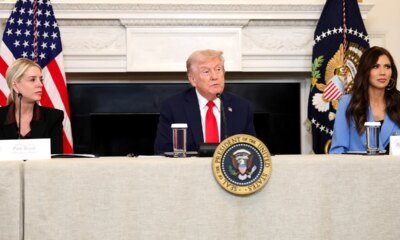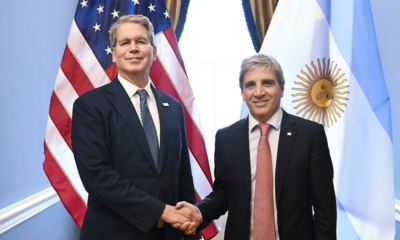INTERNACIONAL
Trump cancels $4.9B foreign aid, pushes DC death penalty, touts Kim ties
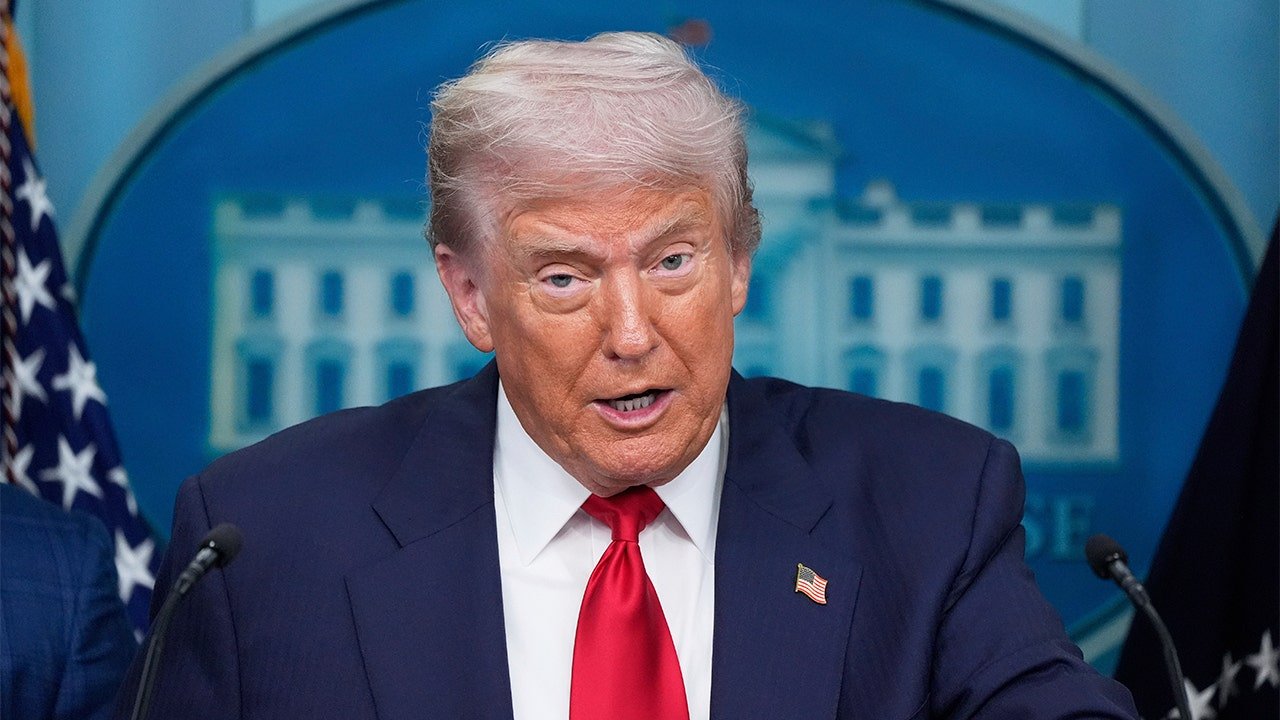
NEWYou can now listen to Fox News articles!
President Donald Trump closed out his week by informing Congress he is revoking nearly $5 billion in foreign aid that Congress already had approved as the legislative branch faces an Oct. 1 deadline to fund the government or deal with a shutdown.
Trump is rescinding the funding using a pocket rescission. Unlike a typical rescission request that allows Congress to sign off on nixing the approved funding within 45-days, a pocket rescission sidesteps Congress because it’s so close to the end of the fiscal year that the legislative branch can’t act accordingly.
«Last night, President Trump CANCELED $4.9 billion in America Last foreign aid using a pocket rescission,» the Office of Management and Budget (OMB) said on X on Friday. «[President Donald Trump] will always put AMERICA FIRST!»
WHITE HOUSE MOVE TO CANCEL $4.9B FOREIGN AID WITH ‘POCKET RESCISSION’ BLASTED AS ILLEGAL
Included in the slashed funds are roughly $520 million from the contributions to international organizations account, more than $390 million to the contributions for international peacekeeping activities account, $322 million from the democracy fund, $445 million from the Peacekeeping Operations account and more than $3 billion from development assistance.
Meanwhile, lawmakers on both sides of the aisle aren’t happy about Trump’s decision to pull the funding.
«Any effort to rescind appropriated funds without congressional approval is a clear violation of the law,» Senate Appropriations Chair Susan Collins, R-Maine, said in a Friday statement.
Here’s what also happened this week:
South Korea summit
Trump kicked off the week Monday meeting with South Korea’s new president, Lee Jae Myung.
However, during the summit, he touted his relationship with North Korean leader Kim Jong Un and said the two would meet «someday.» Trump met with Kim on three occasions during his first term in office for denuclearization talks — the first time in Singapore in 2018, and then twice in 2019 in Vietnam and within North Korea.
TRUMP TOUTS KIM JONG UN RELATIONSHIP AMID SOUTH KOREA SUMMIT
A handout photo provided by Dong-A Ilbo of North Korean leader Kim Jong Un and U.S. President Donald Trump inside the demilitarized zone (DMZ) separating the South and North Korea on June 30, 2019 in Panmunjom, South Korea. (Dong-A Ilbo via Getty Images/Getty Images)
«I have very good relationships with Kim Jong UN, North Korea,» Trump told reporters at the White House Monday. «I mean, a lot of people would say, ‘Oh, that’s terrible.’ No, it’s good. In fact, someday I’ll see him. I look forward to seeing him. He was very good with me. We had two meeting — we had two summits. We got along great.»
Although the current Trump administration has signaled ongoing interest in renewing denuclearization talks with North Korea, Pyongyang has not shown interest in denuclearizing.
Death penalty in Washington?
Trump disclosed that he plans to seek the death penalty in Washington for those convicted of murder as he continues his crime crackdown in the nation’s capital.
«If somebody kills somebody in the capital, Washington, D.C., we’re going to be seeking the death penalty,» Trump told reporters during a Tuesday Cabinet meeting. «And that’s a very strong preventative. And everybody that’s heard it agrees with it. I don’t know if we’re ready for it in this country, but we have it. … We have no choice.»
The Supreme Court ruled in 1972 in Furman v. Georgia that the death penalty violated the Eighth Amendment’s provision barring cruel and unusual punishment. Additionally, the D.C. Council officially rescinded the death penalty in 1981, according to the nonprofit organization the Death Penalty Information Center.
DEATH PENALTY COULD RETURN IN NATION’S CAPITAL UNDER TRUMP’S DC CRIME CRACKDOWN
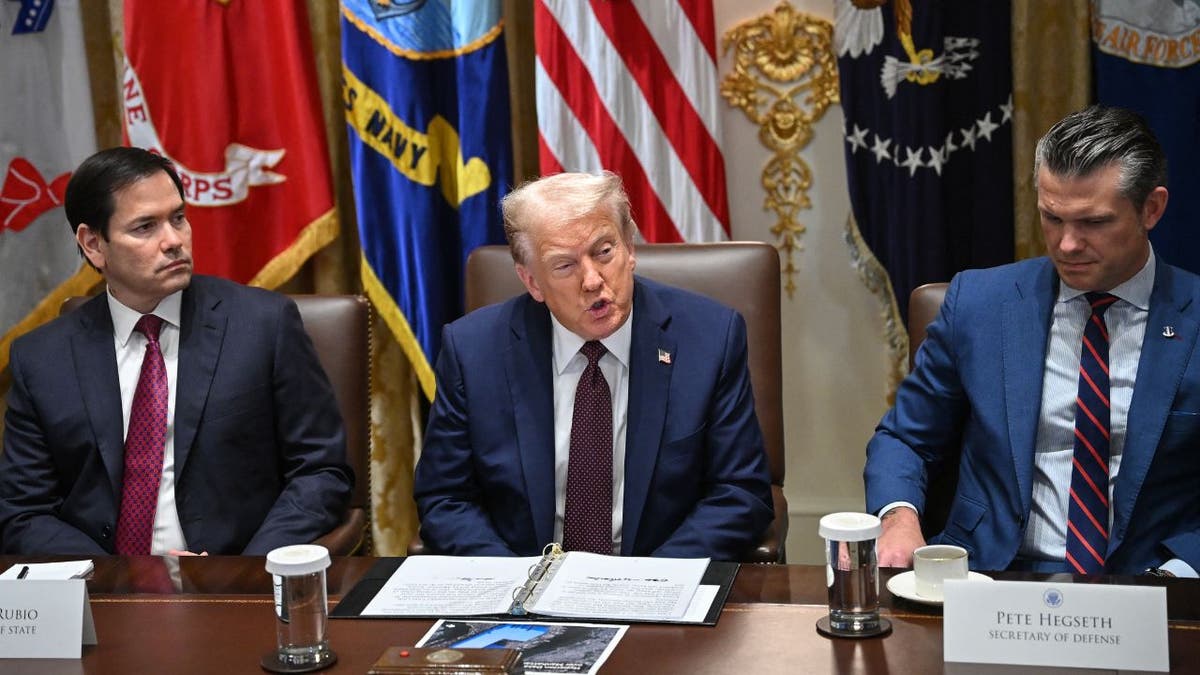
President Donald Trump, alongside Secretary of State Marco Rubio, left, and Secretary of Defense Pete Hegseth, right, speaks during a Cabinet meeting in the Cabinet Room of the White House in Washington, Aug. 26, 2025. (Mandel Ngan/AFP via Getty Images)
It’s unclear exactly how the White House intends to launch this effort and no additional details were immediately available. The White House referred Fox News Digital back to Trump’s comments at the Cabinet meeting.
However, Trump signed an executive order in January titled «Restoring the Death Penalty and Protecting Public Safety.» The order instructs the attorney general to «pursue the death penalty for all crimes of a severity demanding its use.»
«Capital punishment is an essential tool for deterring and punishing those who would commit the most heinous crimes and acts of lethal violence against American citizens,» the order said. «Before, during, and after the founding of the United States, our cities, States, and country have continuously relied upon capital punishment as the ultimate deterrent and only proper punishment for the vilest crimes.»
Trump weighs in on Cracker Barrel
Trump also waded into the discussion about whether Cracker Barrel should update its logo, and urged the restaurant chain to reverse its decision to change its logo to remove «Uncle Herschel.»
«Cracker Barrel should go back to the old logo, admit a mistake based on customer response (the ultimate Poll), and manage the company better than ever before,» Trump said in a Tuesday social media post.

General view of a Cracker Barrel Country Store in Fishkill, New York, Aug. 25, 2025. (Richard Beetham for Fox News Digital)
Later Tuesday, Cracker Barrel announced that it had listened to customers and that the new logo was «going away» and the previous one that had been in place since 1977 would remain.
The White House appeared to take credit for igniting the change, and White House press secretary Karoline Leavitt posted on X, «8 hours ago…» with a screenshot of Trump’s original social media post, in response to Cracker Barrel’s update about reverting to the previous logo.
«Congratulations ‘Cracker Barrel’ on changing your logo back to what it was. All of your fans very much appreciate it,» Trump said in a subsequent social media post Tuesday.
Fox News’ Alex Miller contributed to this report.
white house,donald trump,congress,north korea,crime world
INTERNACIONAL
Expertos advierten que limpiar Gaza de artefactos explosivos sin detonar llevará entre 20 y 30 años

Limpiar la superficie de Gaza de artefactos explosivos sin detonar llevará probablemente entre 20 y 30 años, según un funcionario de la organización humanitaria Humanity & Inclusion, que describe el enclave como un “horrible campo de minas sin cartografiar”.
Según una base de datos dirigida por la ONU, más de 53 personas han muerto y cientos han resultado heridas por los restos mortales de la guerra de dos años entre Israel y Hamas, lo que los grupos de ayuda consideran una enorme subestimación.
El alto el fuego logrado este mes con la mediación de Estados Unidos ha aumentado las esperanzas de que pueda comenzar la ingente tarea de sacarlos de entre millones de toneladas de escombros.
“Si se trata de un desminado completo, nunca se hará, es subterráneo. Lo encontraremos durante generaciones”, afirma Nick Orr, experto en desactivación de artefactos explosivos de Humanity & Inclusion, comparando la situación con la de las ciudades británicas tras la Segunda Guerra Mundial.
“Despejar la superficie, eso sí que es algo alcanzable dentro de una generación, creo que de 20 a 30 años”, añadió. “Va a ser una pequeña reducción de un problema muy grande”.
Orr, que estuvo en Gaza varias veces durante el conflicto, forma parte del equipo de siete personas de su organización que la semana que viene empezará a identificar restos de guerra en infraestructuras esenciales como hospitales y panaderías.

Por ahora, sin embargo, los grupos de ayuda como el suyo no han recibido permiso general de Israel para empezar a retirar y destruir los artefactos, ni para importar el equipo necesario, dijo.
COGAT, el brazo del Ejército israelí que supervisa la ayuda a Gaza, no respondió a una solicitud de comentarios. Bloquea la entrada en Gaza de artículos que considera de “doble uso”, tanto civil como militar.
Orr dijo que estaba solicitando permiso para importar suministros para quemar bombas en lugar de detonarlas, con el fin de aliviar la preocupación de que puedan ser reutilizadas por Hamas.
Se mostró partidario de una fuerza temporal como la prevista en el plan de alto el fuego de 20 puntos.
“Si va a haber algún tipo de futuro dentro de Gaza, tiene que haber una fuerza de seguridad que permita a los trabajadores humanitarios que hagan sus tareas”, afirmó Orr.
Por otra parte, el presidente de Estados Unidos, Donald Trump, afirmó que Israel “perderá su apoyo” si decide seguir adelante con el proceso legal para la anexión de Cisjordania, una cuestión que la Administración Trump ha pedido dejar fuera de la mesa en reiteradas ocasiones.
En una entrevista concedida a la revista Time, Trump aseguró, no obstante, que esto “no sucederá”. “No va a suceder porque he dado mi palabra a los países árabes y no es algo que pueda hacerse ahora, tenemos un gran apoyo de estos países. Israel perdería el apoyo de Estados Unidos si esto sucede”, aclaró.
En este sentido, aseguró que sus acciones han permitido “frenar a (Benjamin) Netanyahu a la hora de seguir con los ataques en Gaza”. “Simplemente habría seguido con la guerra durante años”, dijo, al tiempo que recordó que insistió al primer ministro israelí sobre la cuestión de ponerle fin. “Le dije que se pueden librar batallas de forma unilateral, pero que el mundo estaba en su contra. E Israel es un lugar pequeño en comparación con el mundo”, dijo.
“Le detuve porque iba a seguir. Fue increíble”, sostuvo, al tiempo que aseguró que los intentos de Israel de acabar con la cúpula de Hamas con sus ataques sobre Qatar “fueron un error”, algo “terrible”, pero que creó la posibilidad de lograr por fin un acuerdo. “Cuando cometieron ese error táctico, el de Qatar, le dije al emir que esa cuestión nos colocaría a todos en la misma página”, sostuvo.
Middle East,Military Conflicts
INTERNACIONAL
Essential workers left unpaid after Senate Democrats kill pay bill
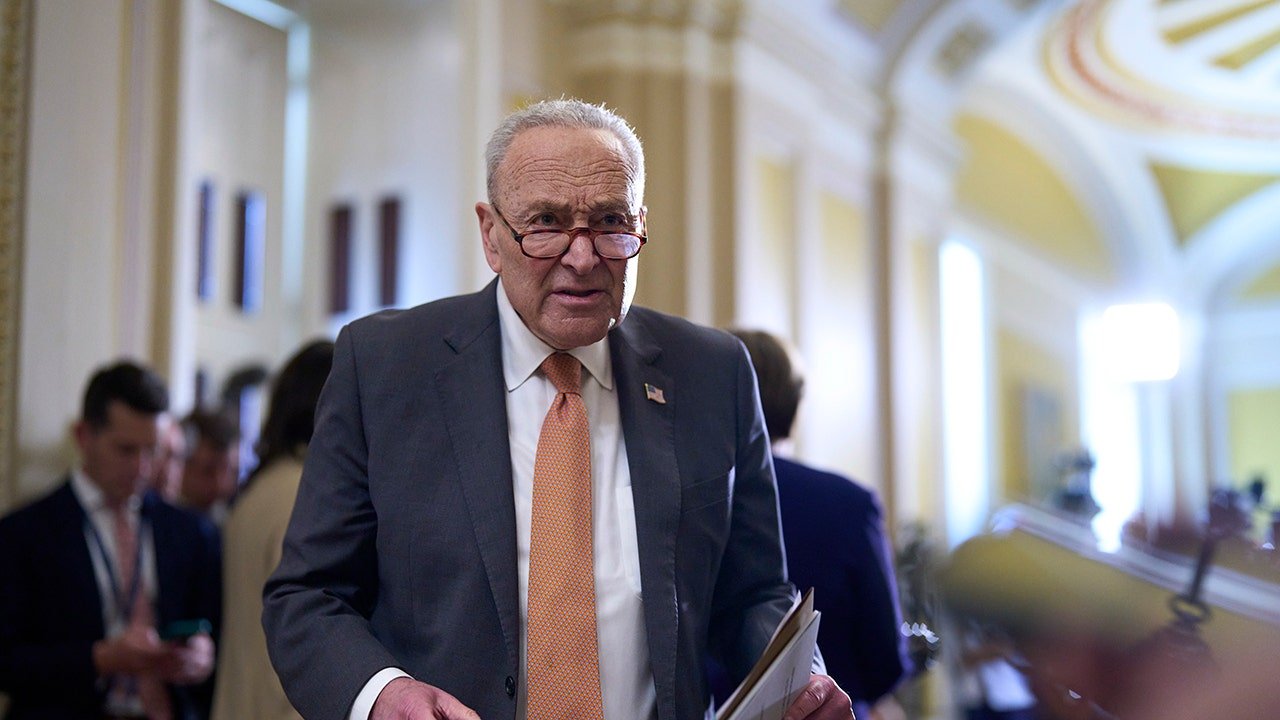
NEWYou can now listen to Fox News articles!
Democrats blocked a Republican-led attempt to provide essential government workers with paychecks amid an ongoing, 23-day shutdown, calling the bill overly selective and incomplete.
That bill, proposed by Sens. Ron Johnson, R-Wis., and Todd Young, R-Ind., failed in a 54-45 vote, where 60 votes were needed to advance the bill over the threat of a filibuster.
Only three Democrats, John Fetterman of Pennsylvania, and Raphael Warnock and Jon Ossoff of Georgia, voted with Republicans.
Senate Minority Leader Chuck Schumer, D-N.Y., turns to an aide during a news conference at the Capitol in Washington, June 3, 2025. (J. Scott Applewhite/AP)
In addition to compensating federal employees and military personnel during the current shutdown, the bill would also extend relief to future instances where funding bills aren’t in effect.
«For fiscal year 2026, and any fiscal year thereafter, there are appropriated such sums as are necessary to provide standard rates of pay, allowances, pay differentials, benefits, and other payments on a regular basis to excepted employees,» the bill reads.
SENATE STALLS ON SHUTDOWN VOTE AMID WARNING FURLOUGHED WORKERS MAY LOSE PAY
Johnson had pitched his bill as a long-term solution.
«I just hope, on a nonpartisan basis, we do something that makes sense around here for once,» Johnson said ahead of the bill’s consideration.
«With Democrats continuing the Schumer Shutdown, they should at least agree to pay all the federal employees that are forced to continue working. The 2025 Shutdown Fairness Act is a permanent fix that will ensure excepted workers and our troops are paid during a shutdown,» Johnson said.
Other Republicans blasted Democrats for voting against the bill.
«It means Democrats don’t care,» Sen. John Cornyn, R-Texas, said. «We know this is going to end sometime. The question is when. I guess it will depend on how much carnage the Democrats want to create. To me, they are in a box canyon, and they can’t figure out how to get out.»
Essential federal employees have been asked to continue working since the government entered a shutdown on Oct. 1 after lawmakers failed to pass spending legislation to begin the 2026 fiscal year. Republicans have advanced a short-term spending extension that would open the government through Nov. 21. Democrats have repeatedly rejected that proposal though, demanding that Congress first consider an extension to expiring COVID-19-era supplemental funding for Obamacare health insurance subsidies.
Republicans, who maintain that the health insurance subsidies are unrelated to the government’s short-term funding needs, have rejected those demands out of hand.
Democrats in the Senate have voted 12 times to defeat the stopgap bill.
JOHNSON WARNS US ‘BARRELING TOWARD ONE OF THE LONGEST SHUTDOWNS’ IN HISTORY
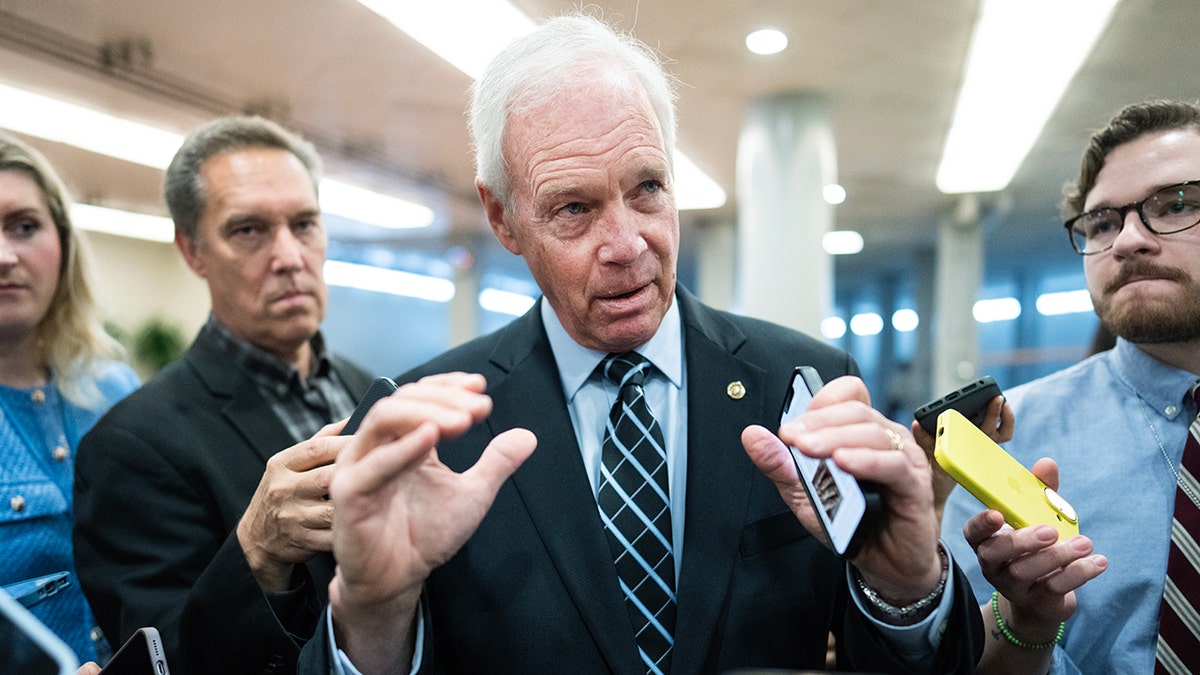
Sen. Ron Johnson talks with reporters in the U.S. Capitol after the House passed the One Big Beautiful Bill Act on May 22, 2025. (Tom Williams/Getty Images)
The shutdown looks poised to continue with no resolution in sight, prompting lawmakers to worry about key areas that are feeling the shutdown’s effects more acutely. The Johnson-Young supplemental package was the most recent attempt to provide a limited basis for relieving some of that pain.
Ahead of Thursday’s vote, Republicans in the House of Representatives appeared open to considering the Johnson-Young bill.
House Speaker Mike Johnson, R-La., told House Republicans during a lawmaker-only call on Tuesday that his chamber would be «prepared to act» if the bill passed the Senate, Fox News Digital was told. Johnson has repeatedly said he would give lawmakers 48 hours’ notice to return to Washington before any votes but has largely signaled he will keep the House out of session until Senate Democrats pass the GOP’s funding bill.
Johnson also said on the call that he was skeptical the bill would get enough Senate Democratic support to pass.
«If they oppose the Ron Johnson bill in the Senate, it will be absolutely clear that they are simply using the military and air traffic control and law enforcement and all these other personnel as pawns for their political efforts,» Johnson said, Fox News Digital was told.
But other lawmakers had hesitations about partially reopening the government, offering relief to some workers and not others. That was the concern of Sen. Richard Blumenthal, D-Conn., ahead of Thursday’s vote.
«I have a concern about picking and choosing among all the federal workers,» Blumenthal said.
«I’m fine to support it. I think we need to pay our military, but I want to define and limit it in a way that provides pay to essential workers who serve our public safety and our national defense,» Blumenthal said.
Blumenthal voted against the measure.
Democrats in the House of Representatives signaled similar lines of opposition to the idea behind the Johnson-Young bill.
HOUSE GOP BLOCKS DEMS’ MILITARY PAY BILL AS GOVERNMENT SHUTDOWN THREATENS CHECKS
«It’s not legislation that I support, because it appears to be more like a political ploy to pick and choose, giving Donald Trump discretion [over] which employees should be compensated, and which employees should not be compensated. All employees should be compensated and that will happen when we reopen the government,» House Minority Leader Hakeem Jeffries, D-N.Y., told reporters on Monday.
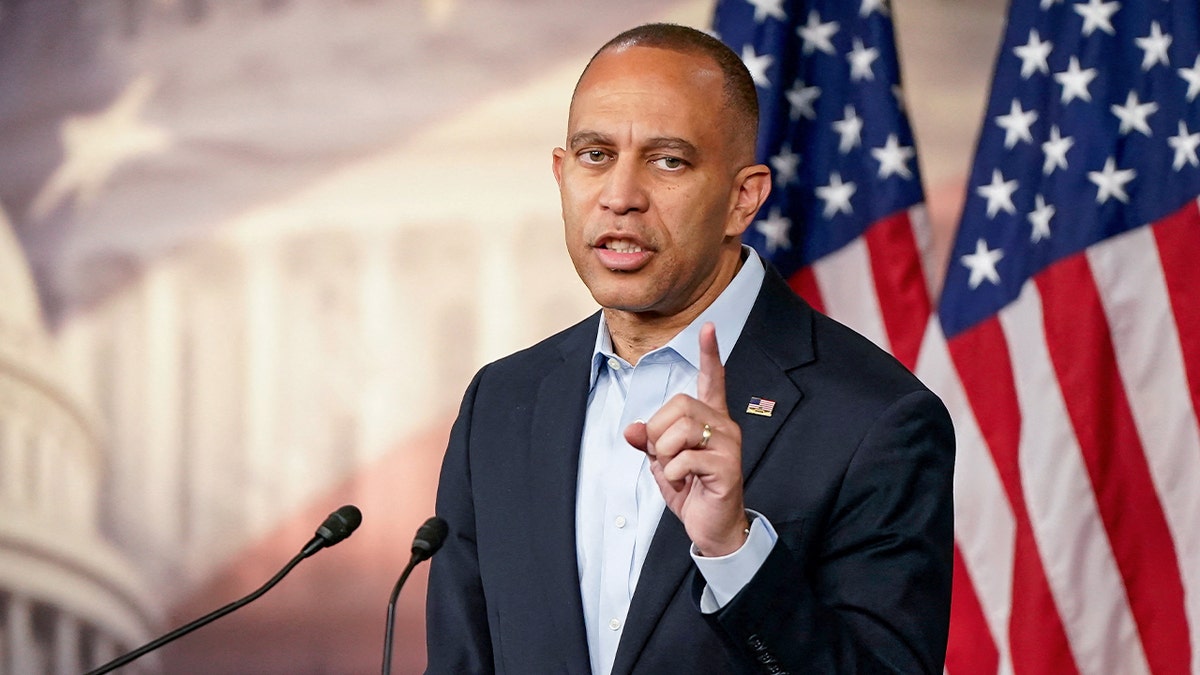
House Minority Leader Hakeem Jeffries, D-N.Y., holds a press conference on the 14th day of the government shutdown on Capitol Hill in Washington, Oct. 14, 2025. (Elizabeth Frantz/Reuters)
CLICK HERE TO GET THE FOX NEWS APP
Senate Democrats also defeated other pieces of legislation that would open portions of the government. Last week, Democrats in the Senate voted against a 2026 defense spending bill — one of the 12 year-long bills normally used to fund the government.
Aside from the Johnson-Young bill, the Senate will not consider other pieces of spending legislation on Thursday. Senators are scheduled to leave Washington, D.C., on Thursday and will return at the beginning of next week.
politics,senate,government shutdown,democrats senate
INTERNACIONAL
Trump vuelve a usar el indulto y perdona a Changpeng Zhao, fundador de criptomonedas Binance, quien admitió haber lavado de dinero
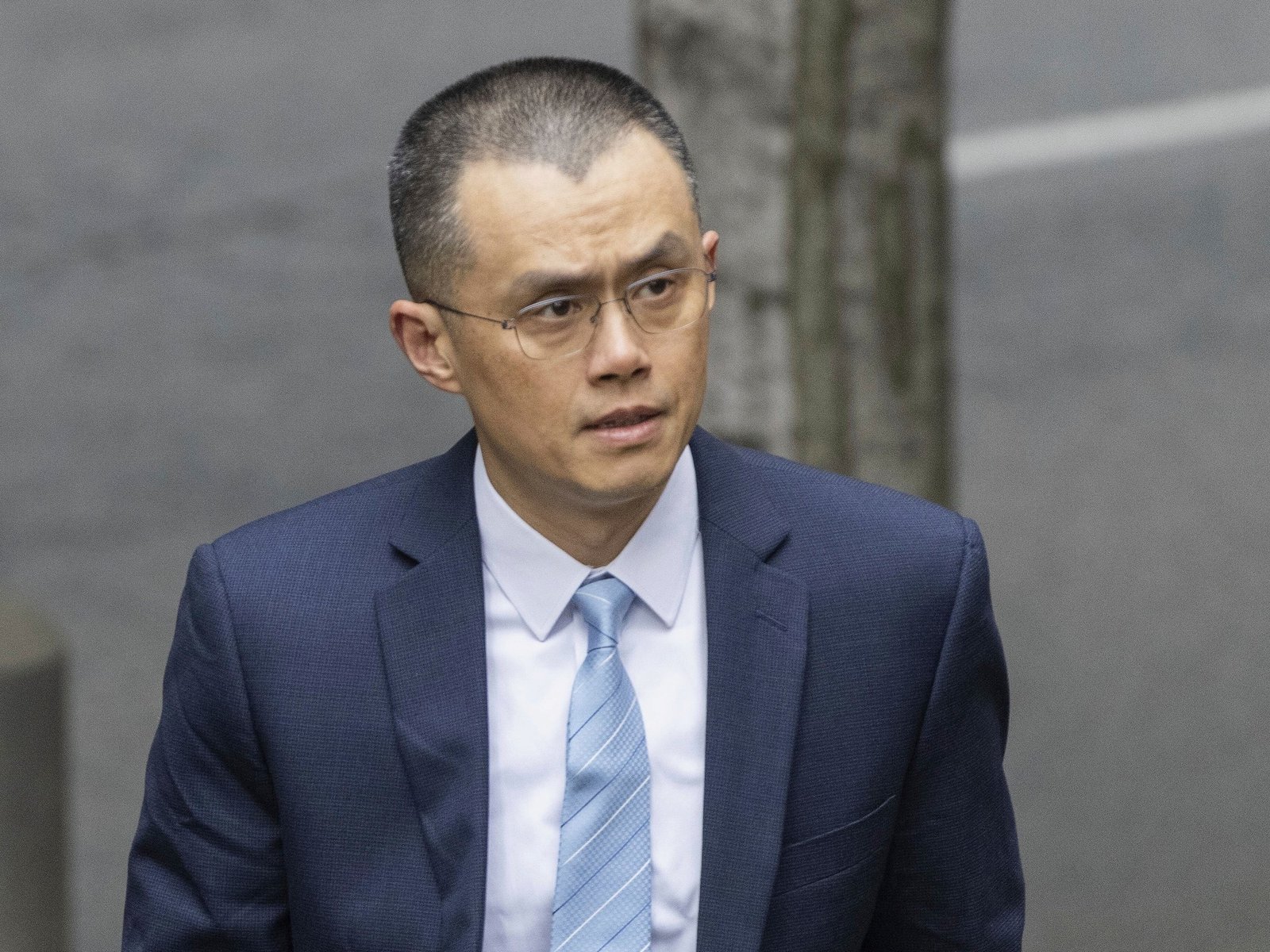
El presidente de Estados Unidos, Donald Trump, indultó al fundador de la plataforma de criptomonedas Binance, Changpeng Zhao, condenado por blanqueo de dinero, según informó este jueves en exclusiva The Wall Street Journal.
Este indulto llega después de esfuerzos por parte de Zhao para impulsar la empresa de criptomonedas de Trump.
Zhao fue condenado en mayo del pasado año a cuatro meses de cárcel tras un acuerdo con las autoridades para resolver acusaciones de blanqueo de dinero en la empresa. Salió de prisión el pasado mes de septiembre.
El exdirigente se declaró culpable de incumplir las normativas de EE.UU. contra el blanqueo de dinero, renunció al cargo de consejero delegado y asumió una multa de 50 millones de dólares como parte de un acuerdo con el Departamento de Justicia.
Binance ha pasado el último año buscando un indulto para el que fuera su fundador.
Según WSJ, el mandatario firmó el indulto el miércoles porque entiende que ha sido víctima de una persecución política, algo que alega con frecuencia cuando se trata de personas cercanas o afines a él, como el caso de Jair Bolsonaro condenado en Brasil por intento de golpe de Estado.
Desde que Trump volvió a la Casa Blanca, Binance ha sido un importante apoyo para la empresa de criptomonedas World Liberty Financial, fundada por la familia del presidente.
World Liberty Financial (WLFI) es una empresa y un proyecto de finanzas descentralizadas y criptomonedas, fundado en 2024. Su principal característica es la conexión pública y directa con el presidente Donald Trump y su familia.
El proyecto está diseñado para crear un ecosistema financiero digital que combina conceptos tradicionales con la tecnología blockchain, es decir sus datos o transacciones no pasan por un servidor bancario sino por una red de miles de computadoras.
World Liberty Financial ha generado una significativa controversia debido a su fuerte vínculo con la política estadounidense. El proyecto se ha asociado con Trump (mencionado como emeritus) y sus hijos, Eric Trump y Donald Trump Jr., entre otros.
Analistas y reguladores han señalado posibles conflictos de interés éticos y políticos, dada la participación de un presidente y su círculo íntimo en un proyecto financiero de esta escala y ambición.
Desde que regresó al poder en enero, Trump ha firmado varios indultos polémicos, como el de los responsables del asalto del Capitolio en 2021 o el de George Santos, excongresista republicano encarcelado por fraude y robo de identidad.
El caso de George Santos es el más reciente. Santos fue un congresista de Nueva York que fue expulsado de la Cámara de Representantes en diciembre de 2023 por numerosas acusaciones de engaño y fraude.
Trump sorprendió la semana pasada al anunciar que había conmutado la sentencia de George Santos, quien fue liberado inmediatamente después de poco más de tres meses de encarcelamiento.
Santos llegó al Congreso en 2022 de manera inesperada, ganando un escaño que lo convirtió rápidamente en una de las figuras más polémicas de Capitol Hill. Su carrera legislativa, sin embargo, fue breve y turbulenta. Todo comenzó a desmoronarse cuando medios de comunicación como The New York Times reportaron que gran parte de su currículum vitae era completamente inventado.
El presidente Trump también usó el indulto en sus últimos días en el cargo de su primera presidencia, a menudo en favor de aliados políticos o personas con fuertes conexiones.
Uno de eso casos es el de Roger Stone. Este asesor político de mucho tiempo fue condenado por mentir al Congreso e intimidar a un testigo en relación con la investigación sobre la injerencia rusa. Trump conmutó su sentencia de prisión y luego le otorgó un indulto completo.
Paul Manafort, es otro ejemplo: exjefe de campaña de Trump, fue condenado por fraude bancario y fiscal como parte de la investigación de Mueller por la injerencia rusa en la campaña de Trump.
Michael Flynn: Exasesor de seguridad nacional de Trump, que se declaró culpable de mentir al FBI. Trump le concedió un indulto completo.
Steve Bannon también es otro caso. El exestratega jefe de Trump, acusado de fraude relacionado con una campaña de recaudación de fondos para construir un muro fronterizo recibió el indultó en las últimas horas de la presidencia del republicano.

 DEPORTE1 día ago
DEPORTE1 día agoUniversidad de Chile vs. Lanús, por la Copa Sudamericana: día, horario y cómo verlo por TV

 CHIMENTOS1 día ago
CHIMENTOS1 día agoAdabel Guerrero confesó de qué famosa está enamorada y que le encantaría tener relaciones: «La China Suárez me sorprendió con su belleza»

 ECONOMIA2 días ago
ECONOMIA2 días agoScott Bessent oficializó el swap con la Argentina y afirmó: “No queremos otro Estado fallido en América Latina”







